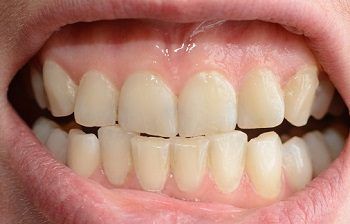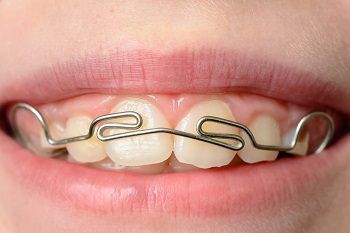How to handle orthodontic emergencies?
Knowing what steps to take to avoid treatment delays is critical when something goes wrong with your braces. While you can resolve some orthodontic emergencies with essential household products, others may necessitate a quick visit to the office.
True orthodontic emergencies are not very common. However, when they occur, there is usually a simple remedy you can complete at home. Continue reading to find out what problems constitute a true orthodontic emergency and what you can fix at home.
Severe Orthodontic Emergencies
Accidental Injury
The damage may necessitate immediate medical attention if you suffer a blow to the mouth due to a sports injury or accident. Depending on the nature of the event, you may need to go to the nearest emergency department.
A concussion can be a severe medical condition if left untreated. If you are injured and bleeding profusely from the lips, go to the emergency room immediately since you may require stitches. Similarly, you should seek emergency treatment if you are bleeding from the head or exhibit any signs of a concussion.

If you have any of the following symptoms, you should see an emergency dentist right away:
- A chipped tooth
- Broken tooth
- Gum injury
These issues are potentially serious and should not be neglected; nevertheless, going to a dentist immediately rather than an ER doctor is the best option.
Swallowed Appliance
If you swallowed an appliance part, such as a bracket or a band, have someone shine a flashlight into your mouth and throat. If the piece cannot be seen and you are coughing excessively or having difficulty breathing, it indicates that it was aspirated or breathed into your lungs. Go to the nearest emergency room right away.
If you're not having issues breathing, the appliance should travel through your digestive system without causing any problems. Moreover, it is best to inform your dentist that you have swallowed the device so that they can arrange for you to come in and get a replacement.
What if I am not sure?
If you are unsure whether your case necessitates emergency treatment, contact your orthodontist's office immediately. However, if you cannot reach someone immediately, go to your local emergency hospital if you have any doubts about the severity of your symptoms. The staff can advise you on whether it is safe to wait to arrange an appointment with the orthodontist, and they may be able to prescribe pain medication to help with symptom alleviation while you wait.
Standard Orthodontic Emergencies
A more common orthodontic "emergency" is an issue that delays or creates discomfort during your orthodontic treatment. It does not pose an urgent threat to your physical or dental health, but it should be handled as soon as possible, possibly before your next regularly scheduled appointment.
Food stuck in your brackets
Typically, this will not necessitate a visit to the orthodontist. But you may require a visit to the dentist in severe cases when the food becomes lodged in the bracket or the gum and all attempts to remove it have failed. You can avoid this if you stop consuming foods that you shouldn't be eating while wearing braces.
Poking wire
Before your first and subsequent sessions conclude, your orthodontist will examine you to ensure no wires protrude or irritate your gums. However, as your teeth move, there may be excess wire that pokes the inside of your mouth. However, you can resolve a wire poking your gums without needing an additional appointment.

The first thing to attempt is to apply wax to the protruding bit of wire. If you run out of wax, use a cotton ball instead. Even better, disinfect a pair of nail clippers and cut the wire yourself.
Similarly, you may also sterilize a pencil eraser and use it to press the wire in a direction so that it is flush with your bracket and no longer pokes your cheek.
However, if the wire is protruding to the point of hurting your skin, you should contact your orthodontist's office and schedule an appointment to resolve the problem.
Brackets or bands that are broken or loose
Eating hard or sticky foods and fiddling with your braces can cause your bracket or the bands around your molars to break. This is why your orthodontist will emphasize the need to avoid certain meals and habits while wearing braces.
If an accident occurs, it will not be a significant factor in delaying your treatment time. You should contact your orthodontist's office to determine whether you require treatment before your next regularly scheduled appointment.
In the meanwhile, leave the bracket alone. Cover it with wax if it's bothering you or you feel tempted to play with it.
Lost aligner
Any moment you are not wearing your aligners, your therapy is stalled. Make sure to contact your orthodontist as soon as possible to order a new set of aligners. Furthermore, going too long without your aligners will slow the treatment process. A misplaced or broken pair of aligners do not necessitate starting over.
If you lose an aligner, wear the aligner from the previous week to keep the tooth moving while you wait for your replacement aligner.
Mouth Irritation/Ulceration
It is typical to have minor ulcerations inside your lips or cheeks when you first put on your braces or after an adjustment. The orthodontist will offer you wax to cover any brackets that may be irritating your mouth. You can also try over-the-counter anti-inflammatory drugs. However, if these become more significant or persistent, contact your orthodontist. Your orthodontist will provide more detailed instructions for cleaning and caring for the sore.
Conclusion
Contact your orthodontist if you have a true emergency where you are so uncomfortable that you can't wait to return. When away from the office, most orthodontists provide an emergency contact number. You can also use your phone to find an orthodontist near you. Moreover, your orthodontist may assist an out-of-town patient with a problem they cannot quickly attend to on their own.
Contact your Pinole Orthodontics, Dr. Hoss Abar, DDS, MSD at Abar Orthodontics, to know how to handle orthodontic emergencies.
Resource:
What Are Common Orthodontic Emergencies?
This media/content or any other on this website does not prescribe, recommend, or prevent any treatment or procedure. Therefore, we highly recommend that you get the advice of a qualified dentist or other medical practitioners regarding your specific dental condition.
More To Explore
About Us
We believe that every patient deserves to feel confident about their smile. Years of experience creating beautiful and flawless smiles.
Opening Hours:
Monday - Thursday: 8:00 AM - 5:00 PM
Friday: 8:00 AM - 12:00 PM
Saturday - Sunday: Closed
Abar Orthodontics, Pinole, CA
1500 Tara Hills Drive., Suite 204
Pinole, CA 94564
Abar Orthodontics, San Leandro, CA
145 East 14th street., #100
San Leandro, CA 94577
© 2026Abar Orthodontics | All rights reserved | Powered by:Vigorant, Inc.
